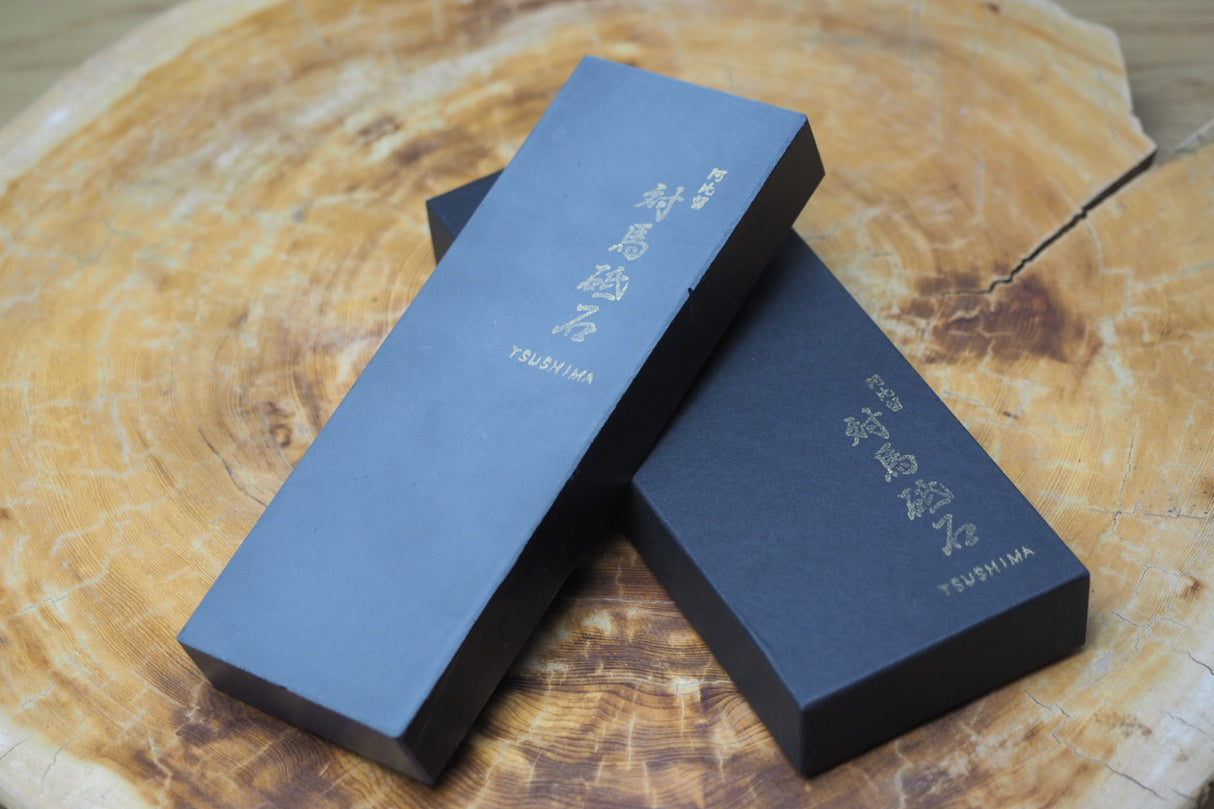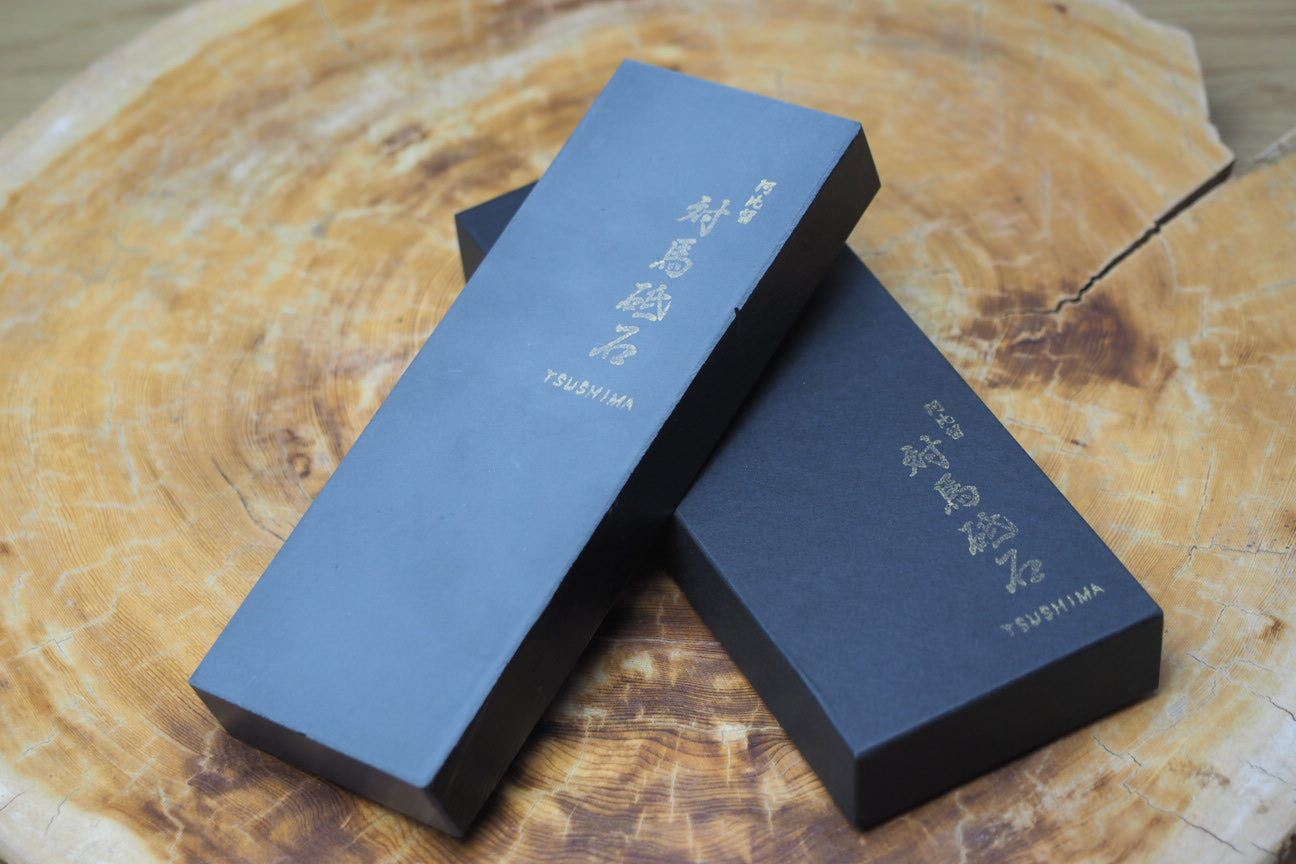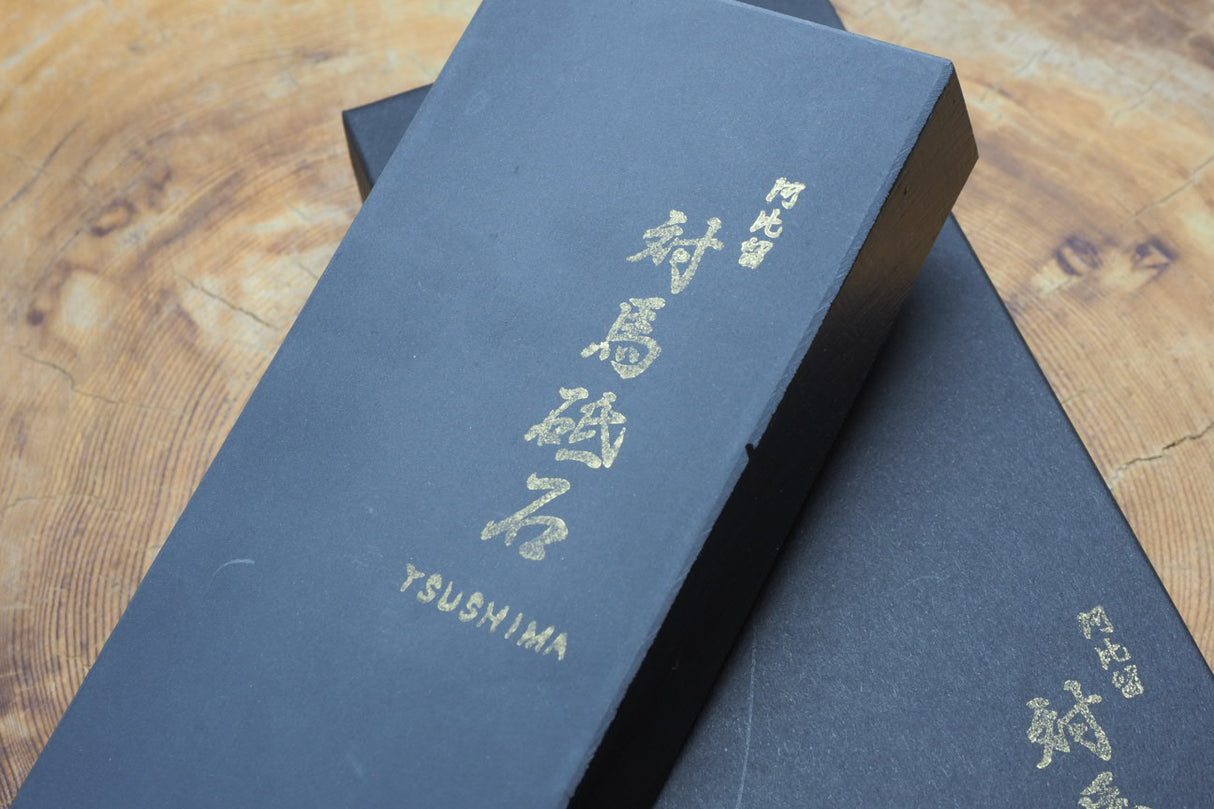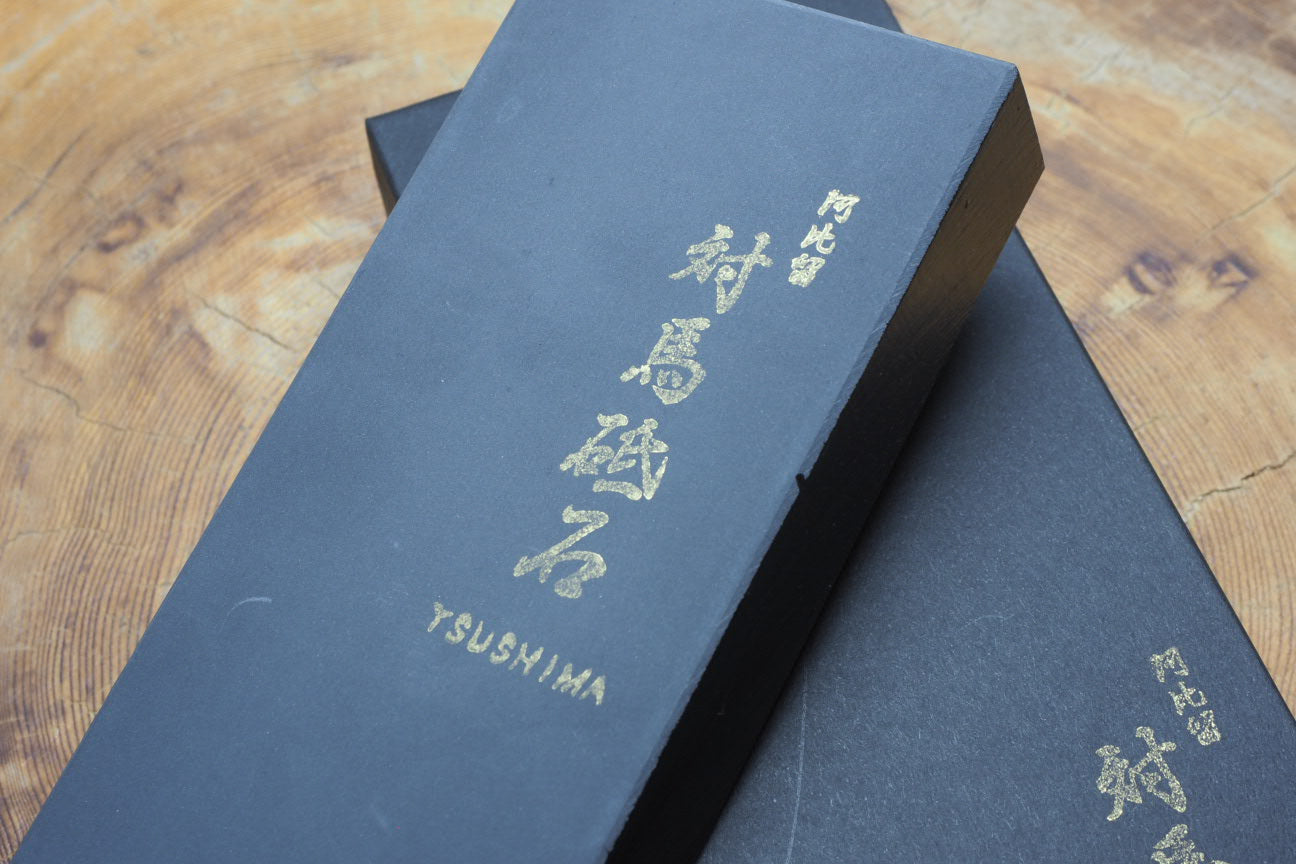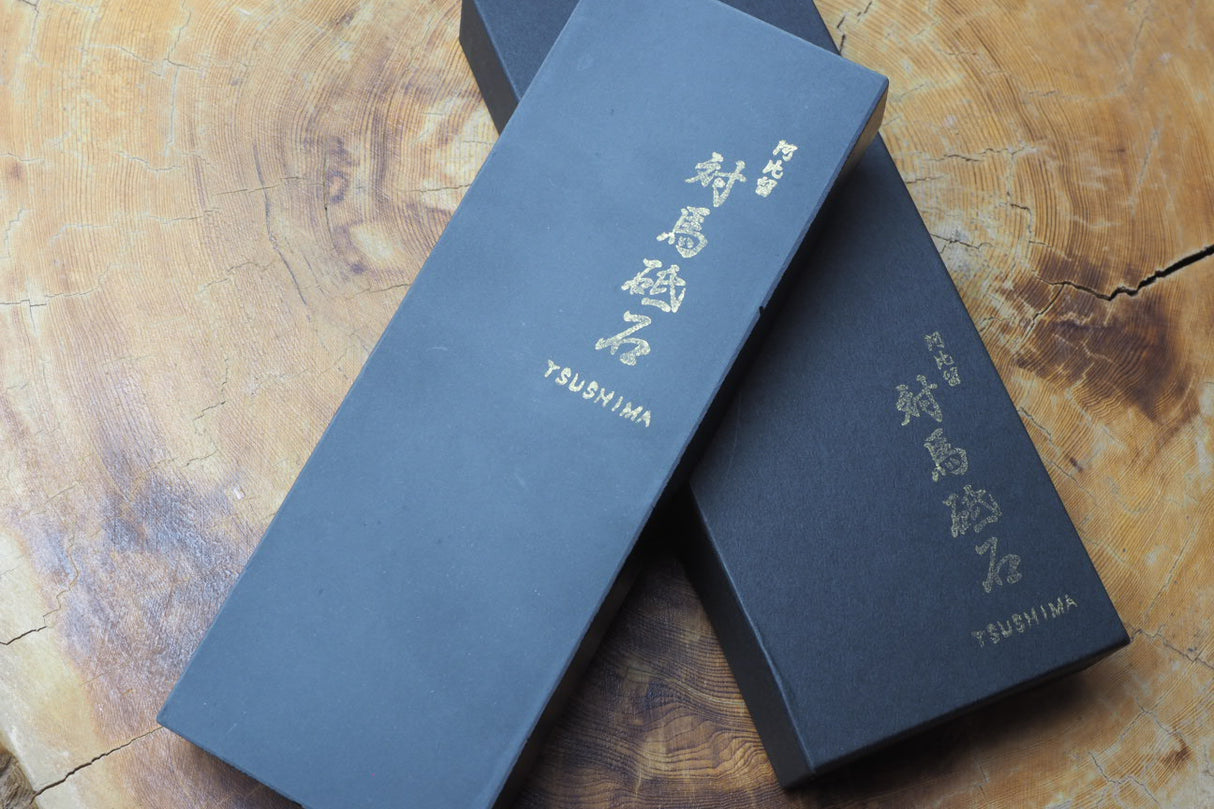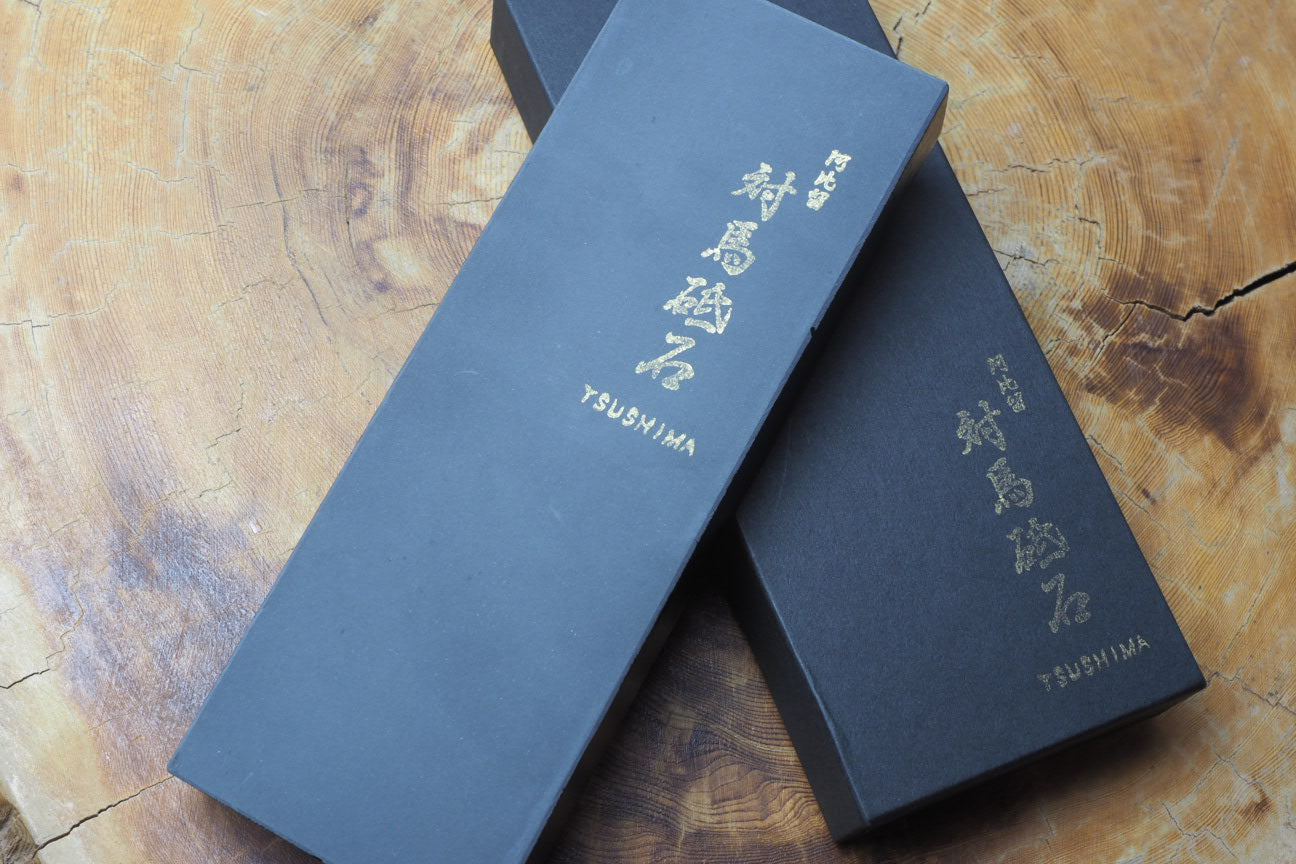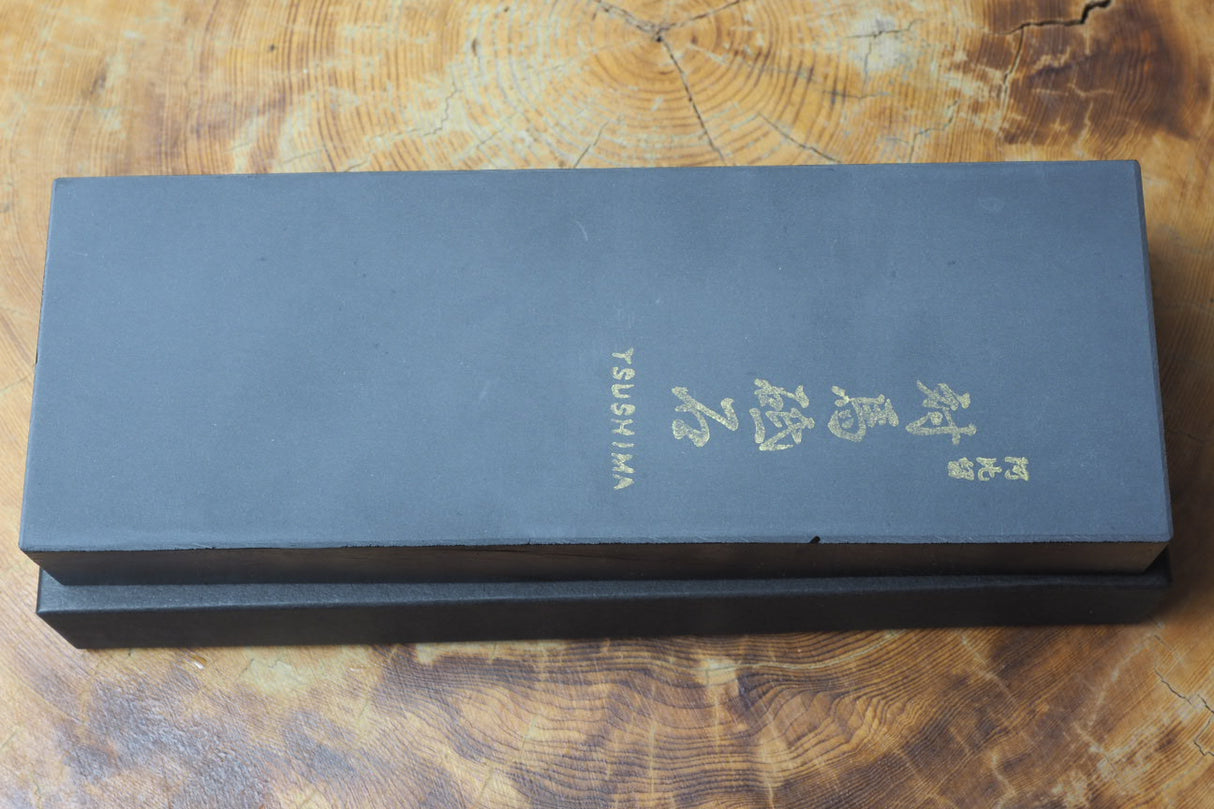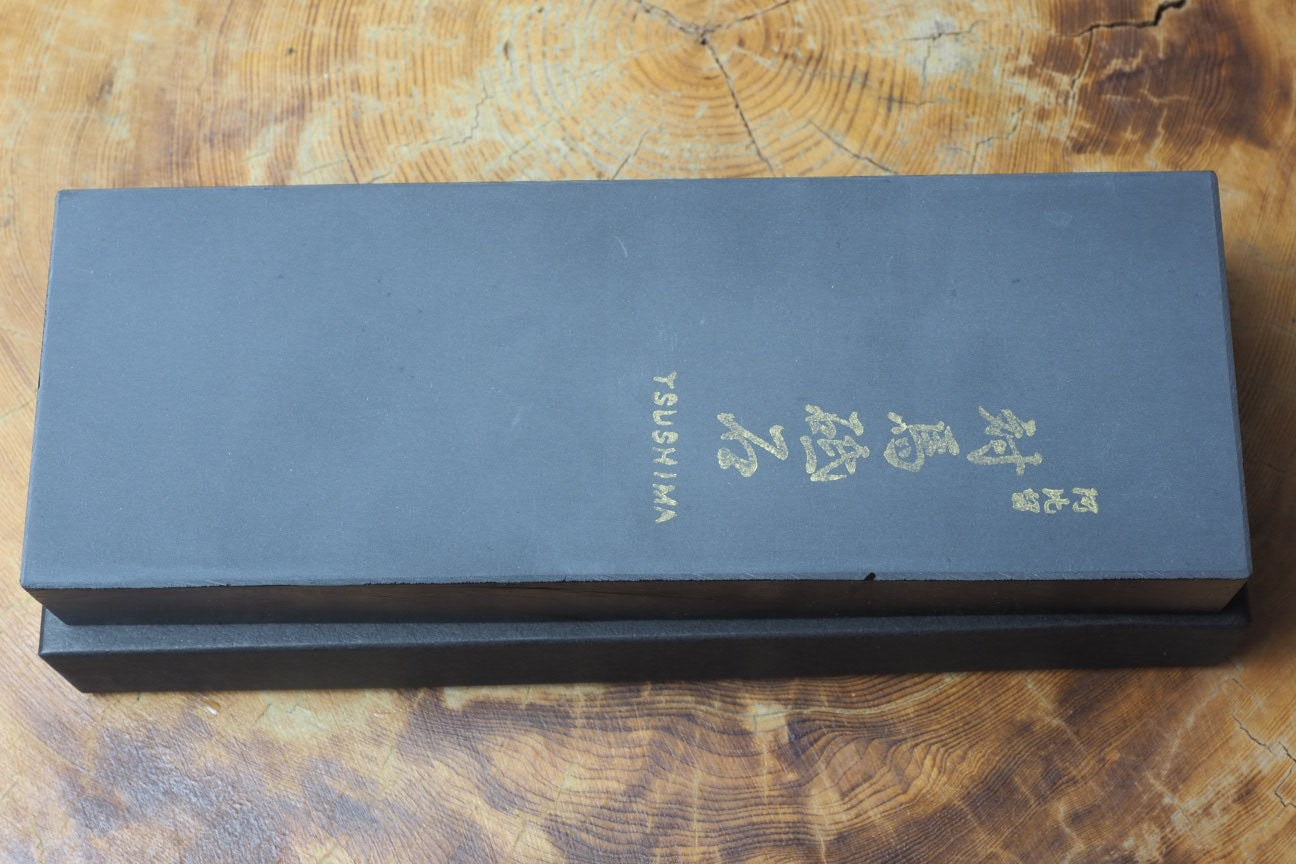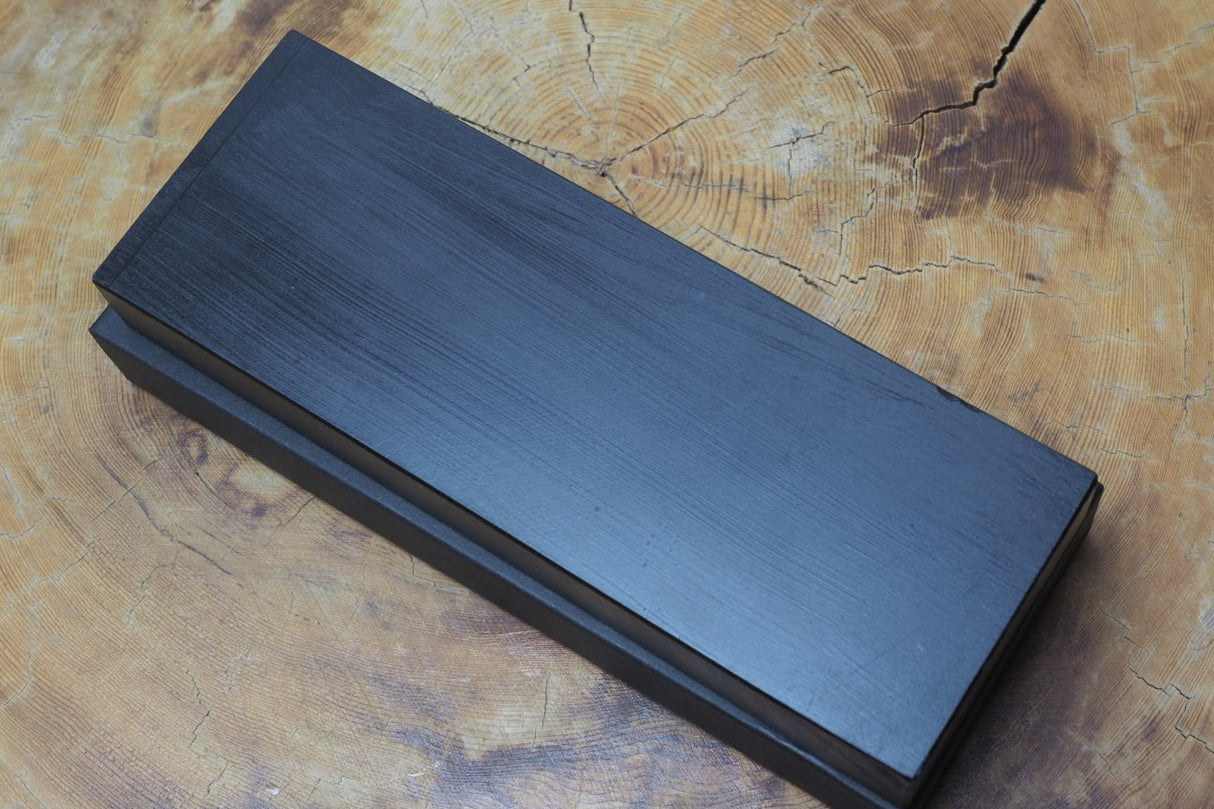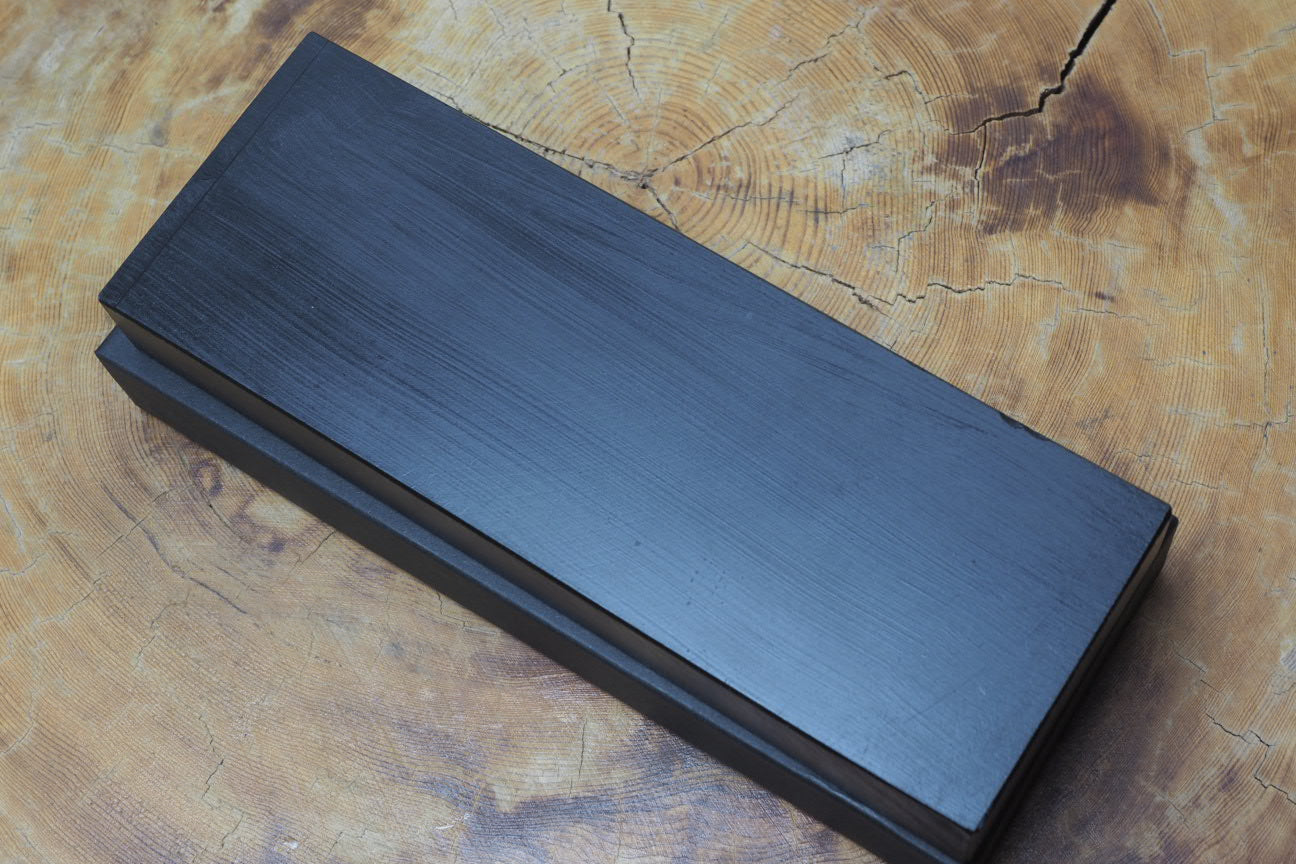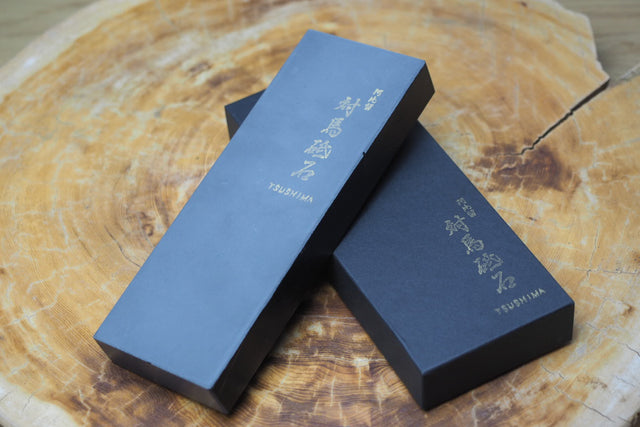JNAT (Japanese Natural Whetstone) - Tsushima Toishi
Couldn't load pickup availability
Side coating is already applied.
Length: 205mm
Width: 75mm
Height: 21mm
Weight: 947g
Hardness: ★★★★☆
Grid roughly #4000-6000 suited as a finishing stone. With nagura stone, it can have a softer and muddier texture.
About the Tsushima stone
The high-quality natural whetstone, retrieved from beneath the waters of Asaji Bay in Nagasaki Prefecture, is highly esteemed for its exceptional value and rarity.
The process of extracting it from the sea involves desalination and drying, demanding considerable time, expertise, and effort. These meticulous steps are believed to significantly enhance the whetstone's quality.
Since the excavation concluded over 40 years ago, obtaining it has become increasingly challenging, further highlighting its scarcity.
This whetstone boasts exquisite hardness, providing flexibility while ensuring outstanding blade engagement. It also possesses a well-balanced combination of grinding and polishing capabilities.
With finely honed edges, it serves not only as a whetstone for knife finishing but also as a Nagura (a type of whetstone) for polishing other natural whetstones. Consequently, it is expected to yield a high-quality finish comparable to whetstones produced in Mikawa(三河).
Maintenance for natural whetstones
Do not soak in water. Water penetrates into the layer of stone, causing it to crack.
Recommended to protect the sides with cashew coating from cracking.
After use, wash with running water, wipe, wrap the stone with dry cloth and leave in a cool place. Please avoid direct sunlight.
Why do we sharpen with Jnat?
Popularity of Jnat has grown because of the beautiful finishing results on the blade surface. It creates the distinct contrast between the edge line and cladding steel as well as natural luster that evenly appears throughout. Exceptional sharpness is also the point why users prefer Jnat. Furthermore, its delicate abrasive performance prevents excessive grinding on the steel, which often leads to rust developed on scratches. Overall, Jnat enables more precise and even-toned sharpening.

-
my_fields.specification-
Payment & Security
Payment methods
Your payment information is processed securely. We do not store credit card details nor have access to your credit card information.
Frequently Asked Questions
Shipping
What countries do you ship to?
What countries do you ship to?
We ship orders from Melbourne. As well as everywhere within Australia, we ship to United States, Canada, New Zealand and some European countries. If your area is not listed in the checkout, please let us know.
How long will it take to receive my order?
How long will it take to receive my order?
Shipping timeframe depends on Australia Post. Parcel post shipping normally takes 1-4 days while express post shipping ensures more prompt delivery. International shipping times depend on the destination (estimated at checkout).
Do you bear import tariffs?
Do you bear import tariffs?
No, import tariff and any fees accompanying have to be paid by customers.
Returns and Refunds
How do I return a product?
How do I return a product?
First if all, please contact us by email: info@kazsknifeonline.com.au.
Items must be returned within 30 days after receiving your order. Items must be returned in the same condition in which they were received, be unused, including all the original packaging.
Upon items returned and confirmed to be resalable, we will process a refund for the item.
How long will it take to receive my refund?
How long will it take to receive my refund?
It usually takes 3-5 business days from the time we process the refund until you receive the money.

